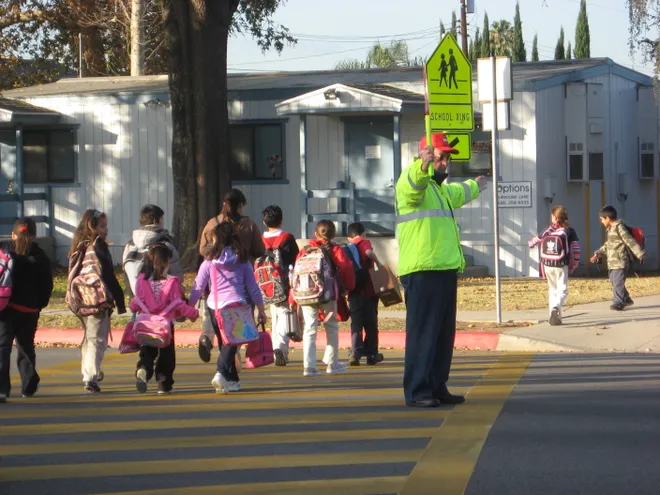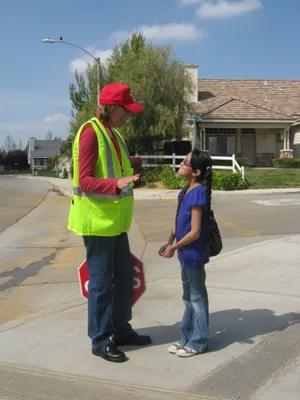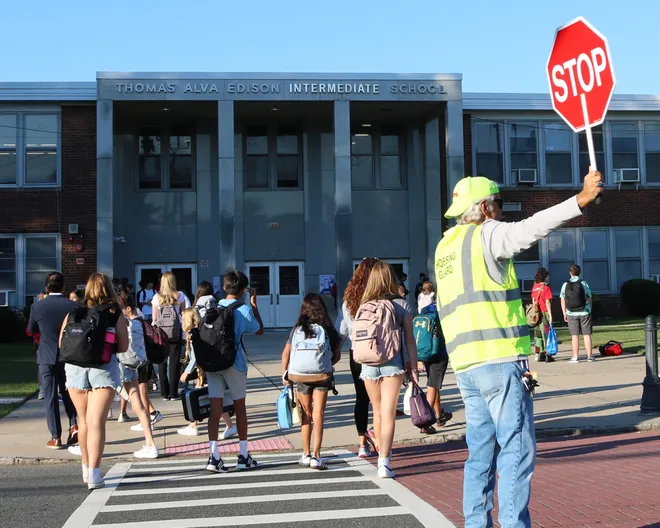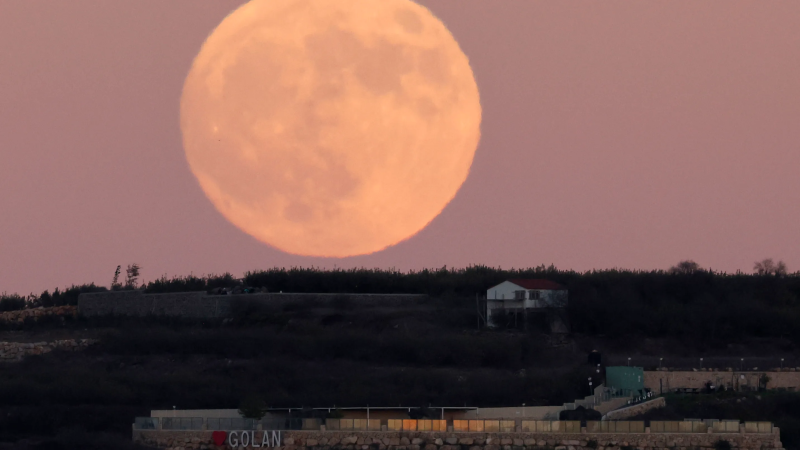'STOP!' Meet the humble heroes keeping kids safe every school day
PHILADELPHIA − Diane Richardson made good money as an insurance investigator. The Nevada resident still talks to friends in the corporate sector who tell her she could be making even more money or who tease her about her career change and even ask what she was thinking when she left it all behind.
So what was she thinking about when she became a school crossing guard?
The short answer: The children.
"Becoming a crossing guard is the most important job and the best job I ever had," she said. That job came with a pay cut; her starting rate was $9.25 an hour. But the rewards seem priceless to her − and to the thousands of crossing guards in the U.S..
"I have friends who do this to supplement their retirement or Social Security income, or to have little extras. But after they do it for a couple of weeks and get to know the children, it's never about the money," she said.
The job, though, is not without risks, and that's something Richardson thinks about often in her current role as an area supervisor in Las Vegas for All City Management Services (ACMS), the largest provider of school safety professionals in the U.S.
And it's "harder than it looks," Richardson said. "People don't realize we're calculating distance and speed. We're standing in front of huge moving vehicles."

Who they are and what they do
There were about 53,400 crossing guards in the United States in 2022, according to Data USA. The average age for crossing guards is nearly 54 years old, and the part-time nature of the job appeals to stay-at-home parents and retirees looking for a little extra money. The average annual salary is about $23,700 and there are slightly more women than men (28,352 and 25,016, respectively) in the profession.
"It's a specific kind of person who can do this work," said Patricia Pohl, vice president of operations for ACMS. The California-based, family-run company works with local police departments, school districts and municipalities in 22 states to employ about 7,000 crossing guards and supervisors.
Safe student crossings "are primarily a public safety issue, but we want to remove that burden from police," so they can focus on law enforcement, said Pohl, who's been with ACMS for nearly 30 years.
"It's very much a hands-on job," she said, and ACMS relies on its local supervisors, who intimately know their communities and their schools, the parents and kids, the streets and traffic ebbs and flows.
Admitting she has "a heart for crossing guards," Pohl is an enthusiastic booster for them, and happy to debunk misconceptions: They're not volunteers, but paid professionals; they undergo training and are vetted; and they're exceptionally devoted to their jobs and the children they protect.
"Once folks get involved, especially if they are connected to that community, the rewards and appreciation from (the community) is part of the pay scale," Pohl said. "They become valued members of the school community. When they try to take a day off, their subs get asked by the kids, 'Who are you and where is our regular person?'"
James Gildea, the township administrator for Westfield, New Jersey, said crossing guards help in other ways, alerting police and municipal officials to reckless drivers, road conditions and other potential hazards.

In the affluent community about 16 miles outside Manhattan, Gildea said, many parents will walk their younger kids to school for the first few days. "After that, a lot of kids walk themselves, and after school, they'll go to the library or our downtown to get snacks," he said. "We wanted our police to be able to do police work."
The town works with schools, police, PTAs and ACMS, which trains crossing guards and provides them with the gear they need, including "STOP" paddles, rain gear and vests.
"It’s a very important job and a very dangerous job," Gildea said. "And the guards are very much cherished by the people who live here."

Safety and smiles
According to the MEL Safety Institute, school crossing guards have "one of the most dangerous occupations in local government." The accident rate has increased by 65% over the last 10 years, the New Jersey-based group said, even though just 15% of children walk to school.
"Our school zones are clogged with more traffic than they were designed to handle," the MEL Institute says on its website, "which is alarming considering that pedestrian deaths increased by 12% from 2020 to 2021 and 17% of all traffic fatalities in the United States involved pedestrians."
In Philadelphia's Kensington neighborhood, Regina Smith works at the intersection of Clearfield and Emerald streets, helping children at two nearby elementary schools make their way through one of the city's most challenged areas. Crossing guards here are employed by the city.
The 66-year-old lifelong Philadelphia resident was a stay-at-home mom and later worked for a stockbroker. She had planned to retire fully a couple of years ago but stayed with the job after her husband died, drawn by full-time municipal benefits with a part-time job.
She worries about distracted drivers, especially in a neighborhood that's the nexus of a lot of urban problems: homelessness, addiction, poverty, but also rapid growth and gentrification.
"I've had to push kids out of the way," she said. "It's a big responsibility. Sometimes I might even have to yell at kid. I tell them, 'If you get hit, I have to answer to your parents!'"
Anytime she's had problems, Smith said the police are quick to respond, and so are people in the neighborhood, from the parents and school staff to the bodega owner on the corner.
"What you learn is to find your rhythm. What works on my corner might not work on yours. You have to learn, and you find your rhythm after a couple of days," she said.

'Silent heroes' connect with the community
For Diane Richardson, the supervisor in Las Vegas, the elements are another challenge. Temperatures can soar to the triple digits, even in spring and fall: "The heat is no joke," she said. Guards drink plenty of water and use cooling towels and even personal fans and spray bottles to cope.
But for Richardson and Smith, the rewards are worth it all: the rain, the risks, the heat, the cold.
"You're dealing with children, and you earn their trust," Richardson said. She joked that when friends ask why she didn't become a teacher given her love for kids, she replies, "I want them to like me."
Most of her crossing guards are seniors who take the job very seriously, and it's something that gives them a sense of purpose, she said.
Smith, the Philadelphia crossing guard, said the little kids are her favorite, greeting her with smiles and every morning and afternoon.
And despite Kensington's challenges, she said, "The neighbors are very nice and they’re trying to make a better life for themselves. They're good to me, I love them."
Pohl said ACMS has had crossing guards ask about their kids from hospital beds; one woman lost her own daughter but showed up for work the next day because she didn't think her daughter would want any children to be unsafe.
"These are special people!" she said. "The cliche is 'silent heroes,' but it's so true."
Contact Phaedra Trethan by email at ptrethan@usatoday.com, on X (formerly Twitter) @wordsbyphaedra, or on Threads @by_phaedra
Disclaimer: The copyright of this article belongs to the original author. Reposting this article is solely for the purpose of information dissemination and does not constitute any investment advice. If there is any infringement, please contact us immediately. We will make corrections or deletions as necessary. Thank you.




